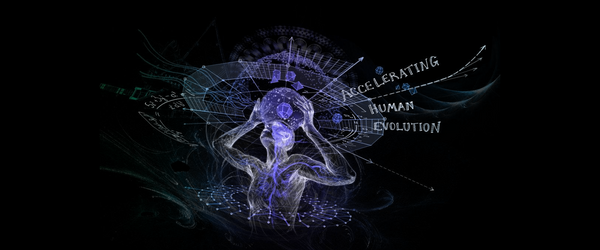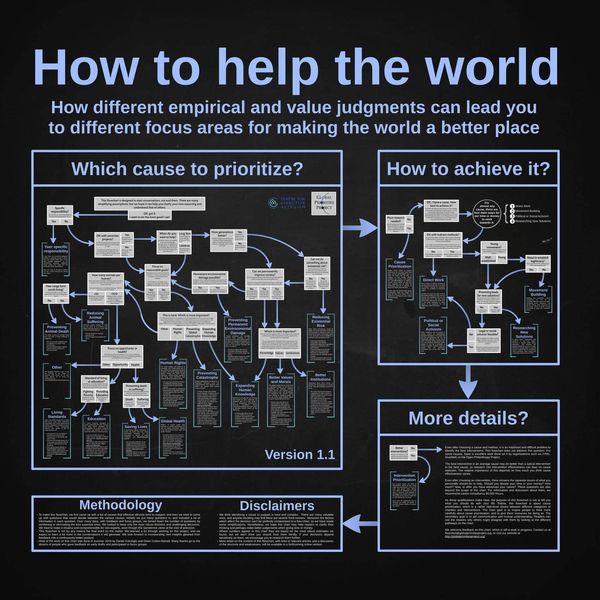Jordan Bates • • 26 min read
HE Podcast #4: Tim Urban Talks Virtual Reality, Elon Musk, Free Speech, Cryonics, and More
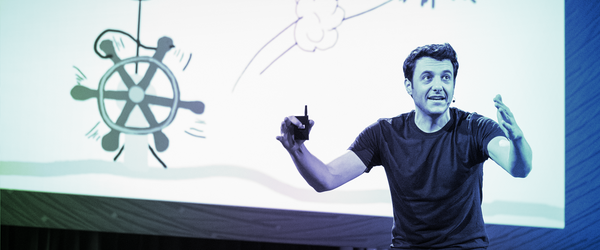
I was living in Albania when I found out I had a chance to interview Tim Urban.
This was a “holy shit” moment for me.
Tim is one of the most popular writers on the Internet.
He’s the mastermind author-illustrator behind Wait But Why, a blog you probably know.
Wait But Why is a phenomenon.
Since launching in 2013, it’s risen meteorically to Internet fame, reaching tens of millions of people.
How is that possible?
Tim Urban.
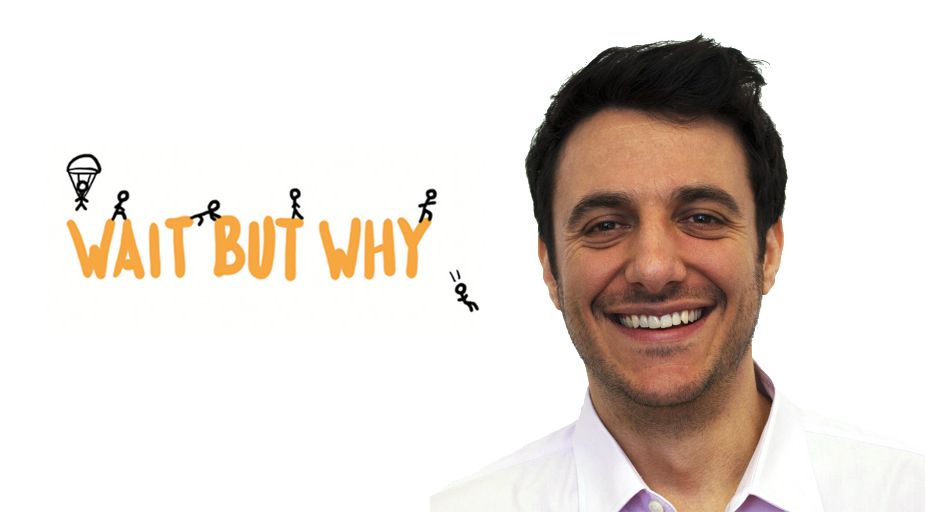
Tim is one of those rare writers who can turn almost any topic into the most fascinating thing you’ve ever heard of.
Like all great writers, it isn’t so much what Tim writes about, but how he writes about it.
His articles are hilarious, often ridiculously long, overflowing with personality, and full of wry stick-figure illustrations, like these from his series on Elon Musk:
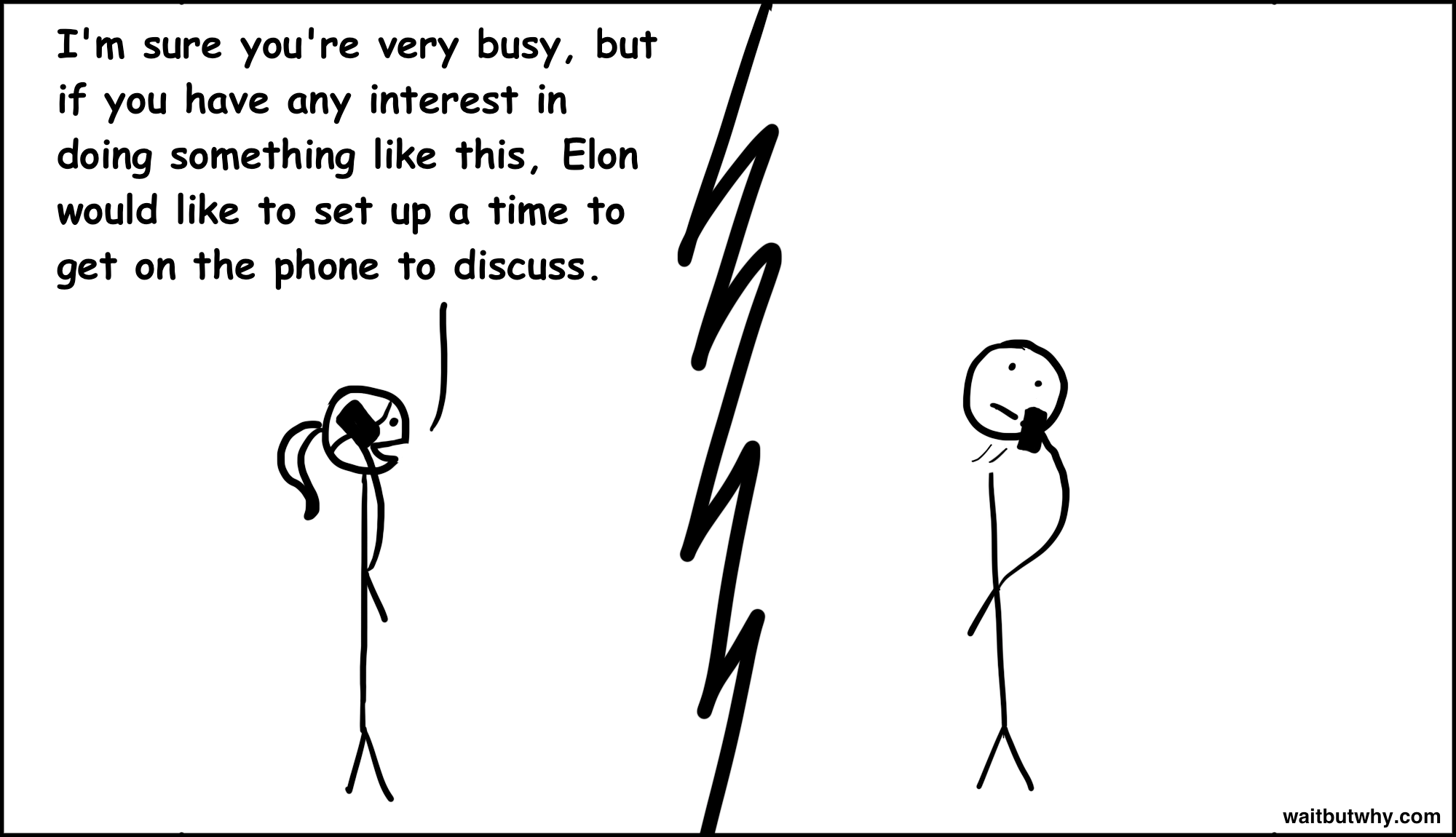
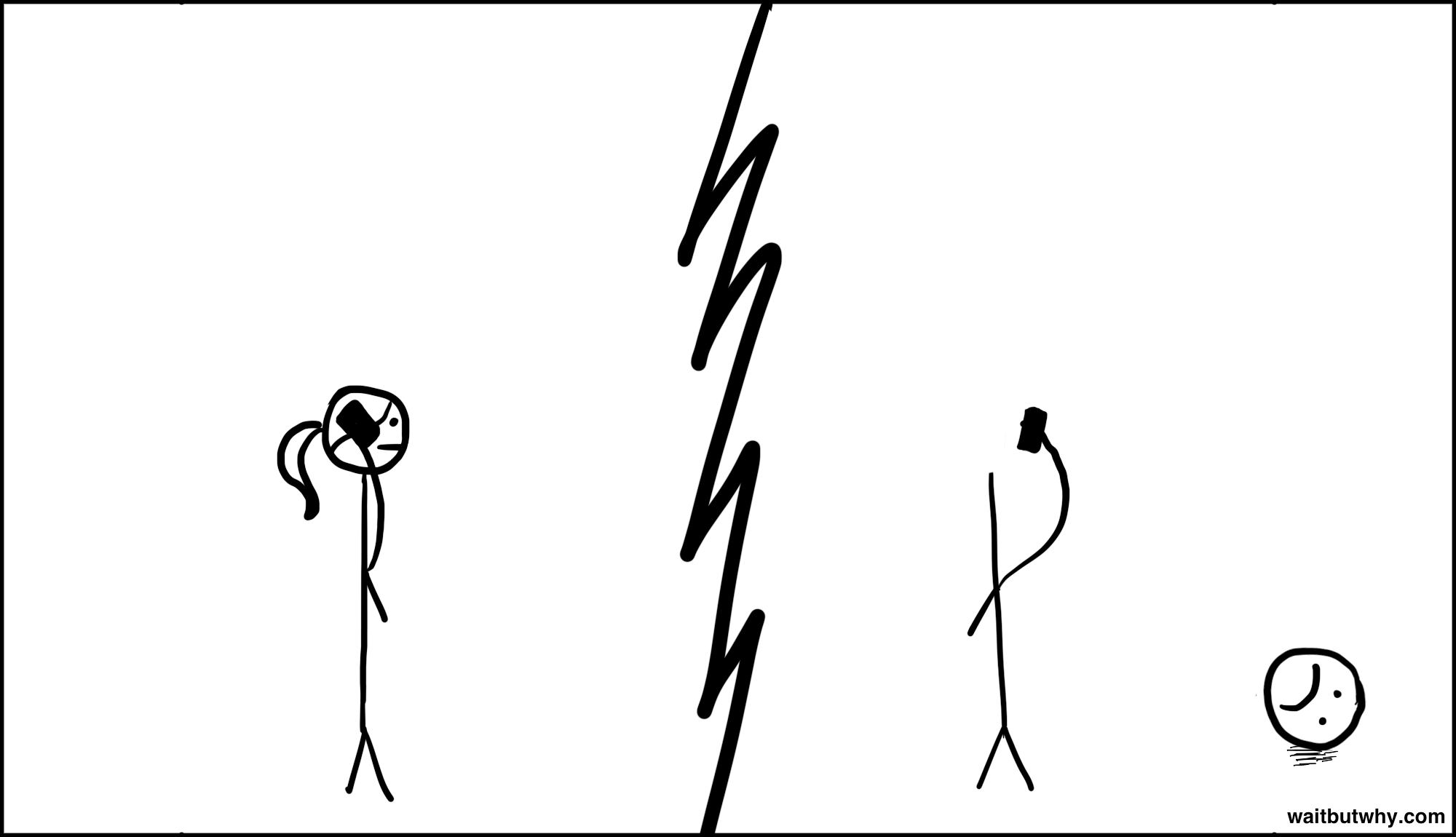
When I spoke with Tim over Skype, I quickly learned that his ability to captivate is not limited to the written word.
Tim exudes this contagious passion and curiosity about the world. He’s irrepressibly energetic, animated, charming, and witty.
In talking with him, it was easy to see why his written words feel so alive. The man’s got personality for days.
Tim and I talked about Elon Musk, world travel, entrepreneurship, Wait But Why, virtual reality, free speech, cryonics, artificial intelligence, and more.
It was one hell of an interesting conversation, and I don’t want to keep you from it any longer, so without further ado, enjoy my interview with the living legend, Tim Urban:
(You can download the audio version here, access our podcast’s RSS feed, or scroll down to read a full transcript.)
The Full Transcript of My Interview With Tim Urban
Jordan: “Hello everyone, I’m Jordan Bates, the editor-in-chief of HighExistence, and I’m here with Tim Urban. Tim is one of the Internet’s most popular writers. He’s the author and illustrator of Wait But Why, a blog about space colonization, artificial intelligence, climate change, procrastination, relationships—pretty much the whole gamut of the human experience. Tim, it’s great to have you with us.”
Tim: “Thanks, it’s great to be here.”
Jordan: “We don’t have too much time today, so I’ll just get right into it. You’ve spoken and written about the secret to Elon Musk’s success—his ability to reason from first principles. I was wondering if you could explain what that means and why you think it’s so effective.”
Tim: “Yeah. Well, so, I did a lot of writing about Elon and about what he was doing: SpaceX, Tesla, trying to make humanity multi-planetary, and trying to bring about the advent of electric vehicles, and a sustainable energy world. And it’s just so incredible. It’s so impressive: the scope of these gigantic endeavors. So what I started thinking as I went—I said, “Even the more interesting question here than what is he doing and why is, ‘How is he able to do these kind of things?’” And it’s a question I’ve asked about a lot of people who seem like they have superpowers. How is it possible that someone could be so much more effective than the average person?
And so I started thinking hard about that. And the good news is I don’t think it’s anything necessarily that he’s born with that the rest of us don’t have, and I think that’s really often the case. I think it has to do with the way he thinks, the way he reasons. So when I looked at how he reasons, he refers to it as “reasoning from first principles”—when it really matters, in the areas of life where it’s really important. And reasoning from first principles is one way you can reason, and it means that you basically look at—it comes from physics; it’s the way physicists build their theories. You just start with the axioms that you know—the very basic ones—and you just use those as your puzzle pieces to construct a conclusion. And it doesn’t matter whether conventional wisdom or anyone else says the conclusion is different. If your first principles reasoning reaches a certain conclusion, you trust it.
Now, the other way to reason is what most of us do most of the time, which is reason by analogy, meaning we see something that already exists, or a way something already is, and we just assume that that’s for a good reason, and we iterate—if we want to build something new—we just kind of iterate on what’s already been done, because we have this high regard, this almost reverence, for conventional wisdom and for the way the world is, and it’s there for a reason built by smarter people than me, and that I should just try to build upon it a little bit. As opposed to questioning everything because your reasoning might disagree with it. So it’s a simple concept, but it’s very hard to do, especially where it counts. Your clothing you pick out everyday—you can reason by analogy there. That’s not a really critical part of life necessarily. What’s an important part of life is what you’re doing for your career, and how you’re building that career, or what you’re doing in your private life, and the way you live your life.
And it’s in those moments that someone like Elon thinks you have to shut everything else out and take the information— You know, you still take the information you have, but you just put your head down, and you think deeply about what you know, and build your conclusion, and you go with it. So that’s how you build something like SpaceX, even though the world is telling you, “No billionaire has ever succeeded at this kind of thing. You won’t either. NASA can barely do this stuff. The kind of ambitions you have, no one’s ever done, not even the space agencies. You’re going to throw your money away, don’t do it. His reasoning simply disagreed, so he did it. That makes him very unusual.”
Jordan: “Yeah, I think I remember you gave the example in one of your posts about Elon about traveling, and how you had traveled quite a bit, and been to North Korea, for instance. And I think all of your relatives didn’t want you to go, and everything screams, “North Korea is a horrible and violent place,” but direct experience kind of…”
Tim: “Look, I’m working on this like everyone else. And I reason by analogy probably a lot more than I should. It’s hard to truly put your money down on your first principles reasoning. But I used that as an example of one area where I know the feeling of being like Elon, of being like Steve Jobs, of being someone who just says, “I know this is right, and I trust myself over what everyone else is saying.” It’s very hard, but in one area of my life I feel like I’ve gotten there, which is traveling. And I’ve just been to enough places that the typical American says, “You can’t go there. That’s dangerous.” or, “Why would you want to go there? That’s boring.” And they’re just so incredibly wrong, just dramatically wrong. And I sort of realized, these people don’t know more about me than this; they know less.
So it’s not that I would just travel anywhere. It’s that I’ve developed my own methods for assessing whether is a place is dangerous. I have certain people I do trust who I would ask. I would read certain message boards. There’s a lot of things I would do to figure it out, and if my reasoning says, “Yeah, I think it will be fine,” and then everyone is saying, “That’s stupid. You can’t go there. You’re going to get…,” I ignore them. And I do it. And I’ve had incredible experiences doing this that I would not have had, had I been reasoning by analogy and saying, “Well, no one goes to this place or this place—to Nigeria, to North Korea, up to Greenland, they think it’s boring up there. No one goes to these places, so I’m just not going to go there.” These were my best travel experiences, so that was just an example. It’s good to think in your life of somewhere where you are good at reasoning by first principles, because everyone is probably good somewhere, right? And to understand that feeling and realize how you can apply that to other parts of your life too. And that the conventional wisdom that you so don’t respect in one part of your life—realize that maybe you shouldn’t respect it so much in other parts as well.”
Jordan: “Would you say entrepreneurs in general tend to be more from-first-principles-style reasoners in the domain of careers, as opposed to the normal person? Because when I think of the conventional wisdom about careers, it’s basically, you know, “Get a prefabricated role in society and work that role for 40 years,” whereas entrepreneurs tend to diverge from that and just basically identify an actual need in the world and then create something that addresses it. Seems like there’s a correlation there between first principles reasoning and entrepreneurship in general.”
Tim: “I think [in] choosing an entrepreneurial path the person’s probably exercising a pretty strong amount of first principles reasoning, but I think that often entrepreneurs take that first step, and then they often discontinue the first principles reasoning once they’re there. And a lot of entrepreneurs I think build—whatever they’re building in the world, whatever problem they’re trying to solve—they sometimes get scared to do it in too new a way. You see a lot of entrepreneurs build something that’s kind of already out there, and they iterate on it a little. Which, by the way, that can be a great business. There are a lot of businesses where—you know, Facebook was kind of an iteration on Friendster, which was already out there. And it was correct. Basically, sometimes the genius is seeing that this is close, and it just needs a little tweak, but more often, I think, the entrepreneurs who want to do something big and really want to make an impact—it’s not going to be iterating on something that’s close. Because Friendster was such a new—social media was so new in general.
But usually it’s that if you want to disrupt something—whether it’s disrupt an actual industry or disrupt the culture of people who might watch or read what you do, or whatever it is—I think that reasoning by analogy is not going to get you where you want to go. It’s not going to make that level of impact. And the mistake people make is they think, “Well, if I want to make an impact, I have to take this huge risk. I have to be a genius. I’m not smart enough to invent a whole new way.” And that’s just not really true. You have to get good at thinking originally. And original thinking sounds—you know, you can quote, “Someone’s such an original. They’re brilliant.”—but that doesn’t mean brilliant. It literally just means original; it means they’re just working from a blank slate as much as they can, and just trying to pretend this whole industry doesn’t exist. And I’m doing the first thing in this industry. What would I do? I feel like if you look at the iPhone, it’s not a brilliant design to have a large touch screen. It kind of makes sense. But everyone else had had a big keyboard taking up half the screen, and when Apple said, “Let’s build a phone,” they came at it as outsiders, and kind of as cocky outsiders who said, “We’re as smart as anyone. We don’t care what they’re doing in the industry. They’re probably doing it badly.” Which is I think a healthy feeling in some ways for an entrepreneur.
But they have the humility, though—I’m sure they worked for months and months on their own thinking. They didn’t ask, “What would an Apple keyboard look like? It will be really sleek. It will be better than any other keyboard.” They said, “What should a mobile device be in this year?” And they started from that, and they built up, and by the time they got to the top, there was no keyboard. And I think entrepreneurs—they think like that. They realize you don’t have to be brilliant; just think about it and pretend the industry’s new. Pretend you’re the first person doing something. Look, that’s a good way to fail also. There will be way more failures by that person, but their successes will be dramatically more impactful and awesome, and that’s what you’re remembered by. So that’s what I would say to entrepreneurs in general: I think entrepreneurs have the right instinct. For sure they’re going their own path. But then I think that sometimes they forget that instinct once they start.”
Jordan: “Would you say you’ve applied some first-principles-style reasoning to what you’ve done with Wait But Why? I feel like there are some important ways where Wait But Why diverges from most blogs out there, or at least puts a fresh spin on things.”
Tim: “Yeah, I think that was one of the things that Wait But Why has done pretty well is not worry too much about what the conventional wisdom says for a blog. Not perfect. Definitely guilty of some reasoning by analogy and working on getting better at it. For example, when I started Wait But Why, everyone would have said—and people did say to me, and I thought this myself—“You can’t do a blog post that’s over 1500 words. No one wants to read a long blog post on the Internet. And I remember the first time I went up to 2500 words, and I kind of braced for everyone to say, “What the hell is this? I’m not reading this.” And they didn’t! People read it. And then I started writing even longer posts, and not only did people read it, people shared it even more than they shared the short things.
And I started to realize, you know, the conventional wisdom is wrong here. Or it paints in too broad of strokes. The conventional wisdom says you can’t do something really long. No one will read it. And I’ve literally heard people say that exact thing. “If you do something long, no one will read it.” And it’s not that long is automatically good. If you’re writing something long and it’s kind of flabby, and it’s long-winded, and it’s just unnecessarily long, that’s terrible. That’s bad writing. And then people won’t read it. Long and bad is the worst thing you can do. But long and substantive, where it’s almost like you’re taking what could be a book, and you’re condensing it into a really tight 15,000 words. That’s a good kind of long for many people.
Some people still won’t read. I might be one of them. If you send me a 15,000-word post, and I start scrolling down and see how long it is, I’m not sure I would read it, unless someone vouched for it so heavily. Then I’d say, “Okay, I’m going to make this one of the things I’m going to do this week. This is one of my [inaudible].” But most of the time I probably wouldn’t read it, but a lot of people will is what I learned. And so there wasn’t much nuance in that conventional wisdom. It wasn’t the nuance to separate the concept of a long but dense and tight and substantive and fun-to-read [post] versus just long. So that was an example.
I think Wait But Why is an expression of just me doing my own thing my own way. That’s usually what I’m talking about when I say “first principles reasoning”—it’s just kind of doing your own thing. So my thing happens to be stick drawings and swearing but also writing about important things and trying to be funny while doing it but also not being afraid to be serious sometimes. That’s my little combo of styles there that merges into me. And everyone, if they just do their own thing, they would find that they have a fairly unique thing of their own. And so I think embracing that thing is a good idea.”
Jordan: “Nice, that’s a good summary. Moving onto the next thing, I was going to ask you what the most lofty or earth-shattering topic is that you’re currently researching or planning to write about.”
Tim: “There’s a few big ones. Planning to write about virtual reality, for example of one thing coming up. I think that’s pretty earth-shattering actually, more than people might realize. People think of it as gaming—like, kind of, a fun game now, a fun way to do something fun. And it is fun. But I think that’s a little like being in 1990 and saying, “I think the Internet is going to be fun.” Well, it’s going to be a lot more than just fun—the Internet. It’s going to be, kind of, everything. It’s going to infiltrate every single part of what it means to be a human in most parts of the world 20 years later. I think VR is the same situation. I think it’s about to be as big as the Internet—in some ways, possibly bigger. Because it’s almost like this is the Internet—the Internet is kind of in its adolescence and this is the Internet becoming an adult. You know, we’re going to live in this.
Right now Internet is a second world that we visit. We visit it through our computer screens, and we have our little screen names, and we have our worlds there. And we can kind of living on the Internet, but we’re still kind of in this world doing something there. VR is when you’re suddenly immersed in a second world as much as you’re immersed in the physical world when you’re in it. And then it gets more complicated, where it’s not just these binary two worlds. There’s a spectrum, where a lot of the time you’ll be in your physical world but there will be other stuff in front of your eyes that’s not really there. That’s called mixed reality. Or on an even lesser amount there’s going to be augmented reality—it’s a little confusing. But I just think it’s going to be a huge part of everyone’s life basically, in another seven years or 15 years. But I think that’s where it’s headed. So that’s a pretty fun topic. And I’ve gotten to do a lot of VR demos and try a bunch of VR in the process of getting prepped for that topic, which was awesome.
And then I’m also working on an article about free speech and just about the culture in the US. It’s not just a law. It’s not just a constitutional amendment—that we should have free speech. It’s an important part of our culture, I think, that we live in a place where it’s okay to disagree, to debate, to hear each other out. That’s how you improve. It’s kind of uncomfortable. It can be painful. But I think it’s a no-pain-no-gain situation. It’s that hard, uncomfortable environment that I think makes us get better as a society. It allows us to kind of be like a grand philosopher—the whole society—that’s toiling. Philosophers aren’t happy. They aren’t sitting there pacing around on a sunny day in a good mood. They’re sitting there toiling. They’re tortured. And I think that that’s why they get to insight. And I think as a society we need to be kind of tortured, meaning we need to have this uncomfortable marketplace of ideas that we live in.
And I think that we’re not being great at that these days—that lots of us are shutting out anything that’s… [trails off] The Internet doesn’t help. Things like the filter bubble. You know, Facebook newsfeed will show you what it thinks you already want to see. They’ll indoctrinate you further into your own views. So will Google search. But also just, you know, on college campuses, and in both liberal and conservative places all around the country. Really, I think it’s very easy to just get tribal about it and only want to talk to people who agree with you and try to almost ruin people who don’t and get into this kind of mob mentality mode. And I just think we need a notch of self-awareness about that, and to work hard on allowing ourselves to embrace the uncomfortable, sometimes painful marketplace that we have the luxury of having here. In other countries you don’t have the option, because the dictator has decided what is allowed to be said. We have this awesome luxury that we can be a society philosopher, and I think we shouldn’t give that up. So those are two posts I’m working on.
Jordan: “Nice, I can’t wait to read those. I’m wondering on the second one if you’ve been influenced at all by the ideas of Jonathan Haidt. Are you aware of his work?”
Tim: “Yeah, I love some of what he’s done. I have a lot more of his reading on my schedule. Did you read that big article in The Atlantic: ‘The Coddling of the American Mind’?
Jordan: “I read a portion of that, but I heard him talking about it on a podcast.”
Tim: “That was a lawyer writing, using the work of Jonathan Haidt, to basically scientifically explain why we’re being the way we’re being, and why it’s so natural for us to become tribal and mob-ish about our views. I thought that was really, really great.”
Jordan: “Yeah, his book, The Righteous Mind, I’m reading right now and highly recommend. And he actually just did a post-election reflection talk with TED—they interviewed him and he gave his insights on the current political moment in America and why things are so divided and how we might heal the divide. You might find that interesting.”
Tim: “That’s awesome. I’ll definitely check that out.”
Jordan: “Next thing I was going to ask was, I recently watched your talk at Google, which was really cool by the way. And you mentioned that you had signed up to be cryonically preserved now. I had read your article on cryonics and why it makes sense, and I was just going to ask if you could talk a little about—just briefly give a short summary of what that process entails and what compelled you—what made you decide to go for it?
Tim: “So the key to understanding cryonics is to understand the definition of death. So we think of death as a moment. It’s a binary thing. You’re alive one second and then you can pinpoint the millisecond that you die. And once you die, that’s it. And that’s kind of an illusion. Fifty years ago, someone falls over in the street, their heart stops beating, they’re not breathing—they would be considered dead, period. That’s it. There’s nothing that would have happened. That’s it. Today we have a lot of technology that actually makes that not the case. If someone falls over, heart stops beating, they’re not breathing, they’ll be rushed to the hospital. We have things like defibrillators, whatever that does, and we have all kinds of advanced CPR machines, and we have technology that can save that person, meaning they weren’t dead 50 years ago when they fell over. They were unable to be saved with 1966 technology. There’s a huge difference there.
So a lot of the time—what cryonicists say is that this is not a unique concept in 1966. If someone today dies in the hospital, and their heart is stopped for more than five minutes, they’re considered brain-dead, and that is considered the legal definition of death. So there’s no bringing that person back. And what cryonicists say is, “That’s true. There’s no bringing that person back today. In 20 years, in 40 years, in 60 years, who knows? The hospitals of the future may very well be able to not only bring this person back, [but] bring them back and fix whatever was ailing them. You know, maybe whatever they died of in the first place—might be able to totally fix that. This person might be considered—someone who’s terminally ill with cancer and dying might be considered in 50 years the way someone today is considered who has pneumonia and goes to the hospital and get[s] it fixed. In the 1700s [if] you had pneumonia, that was like cancer to many people—that killed you. So [cryonicists] talk about how, if you’re in a hospital, and they said, “We don’t have the equipment to save this person, but across the street there’s a hospital that does,” everyone would agree, get in the ambulance and rush them to that hospital! Thy basically say, “We want to do the same thing. We want to rush them to the hospital of the future.”
So that’s the first thing to understand. They consider death a process. And true death happens when the info in your hard drive brain is so distorted and messed up that it could never be recovered by any amount of future technology. That’s a long way after what we consider death today. So they consider someone who’s brain-dead today—their brain, their personality, it’s all in there, all their memories—it’s still intact. It’s just that something has gone wrong with their physical body that we don’t know how to fix. So, if you want to rush them to the future hospital, how do you do that? Well, this is another myth about death. One is that death is a moment, and another is that cryonics means freezing someone. That’s not really what’s happening. If you freeze someone, the liquid in their bodies crystallizes, which destroys their cells, and ice expands. It’s bigger than water, so that destroys huge amounts of tissue. And that would make you irreparably dead.
Instead, what they do is they vitrify you, which is what they do with artificial organs and embryos that are quote “frozen.” No one freezes an embryo. So what they do is they pump a bunch of antifreeze into your bloodstream, and they lower you to a temperature that’s very, very cold where you’re more like in a glass state, where the atoms haven’t crystallized into an organized structure. They’ve just slowed and slowed and slowed until they can’t move anymore. And they call that—you’re kind of on “biological pause.” And at that point they put you in liquid nitrogen, which is at a temperature that you’re down to, it’s the same temperature. And they hope that at some point in the future scientists can say, “Oh yeah, we have a perfectly vitrified brain here that’s in the exact state it was before. We know exactly how to restore this person’s consciousness.” Maybe with a new body. Who knows?
This sounds kind of crazy, but think about how crazy our world would sound to someone in the 1700s, right? And progress moves faster as we move forward. So we might not have to wait 200 years for that level of progress again. It’s not insane to think that in 30, or 40, or 50 years, scientists can do that. So, cryonicists don’t say, “This is definitely going to work.” They say, “It might work. We never know. Let’s bet on the future. Let’s bet on future technology.” And it’s certainly a better chance of having you be able to go on as a human and continue living than the alternative—being buried or cremated. So, that’s the reasoning there.
The more I read about it, the more I said, “This is just logic here.” And you know, the people that think cryonics is—that think badly on it. They either mistakenly think cryonicists are promising something about the future—some fake promise. No one’s promising anything. Or they don’t understand the science. Or they have this belief that humans should die at 85 or so. Why do we want to live longer? Why do you need to live longer? And what I say to that is, I’m sure there were lots of people when the average life expectancy a couple hundred years ago was 33, I’m sure lots of people said, “Why do you want to live longer than 35?” Definitely a lot of the same people who would have said that, and now those people are very happy that that’s not their life. And if we could cure a bunch of diseases and we could get to a better world where suddenly you feel great at the age of 90. You can play sports. Your mind is sharp. And you can live to 130, 150, 170—I don’t think people of that era are going to say, “We shouldn’t have done this. The human lot—it’s [inaudible] at 80, or 40. No one’s going to say that.
So I think there’s a lot of not very hard thinking going on around this, which leads people to scoff at it, or to not even consider it. And as soon as you think about it, I think it kind of becomes pretty obvious. Now I am doing something which I advise readers not to do: I’m cryocrastinating, in that I’m almost signed up, but I have to fill out some… I have to get some more tests, I’m getting my life insurance plan set up—because that’s how you pay for it, with life insurance. You get a life insurance plan that is dedicated specifically to the cryonics company. And that allows you to pay a monthly fee—whatever it is, $30, $50, $100 per month depending on what kind of plan you have—which is, not nothing, but you spend that much on cable, on coffee. I mean, it’s like, this seems like it’s worthy; it’s as important as those things. So I’m in the process. I should be getting my final tests over Thanksgiving, and hopefully I’ll be fully signed up soon so I’ll be good to die in just a few months.
Jordan: “That’s pretty crazy stuff. I’ve definitely been thinking about it myself, having read your post and given it more thought. It seems like one of those things where, if you apply first-principles thinking, and you’re someone who enjoys life, enjoys living, and is interested to see how the future unfolds, it’s like, “Well, yeah, I would like to see what’s going on whenever they could wake me up, if they were able to.””
Tim: “Yeah, I just want to see what happens!”
Jordan: “Yeah, right?”
Tim: “I just want to see what happens in general. I need to know what happens in future history. I also want to see how cool the phones are in a hundred years—how cool [inaudible]. I think humanity is so cool. We’re such cool inventors. We create magic with technology, and we discover things. Imagine dying before realizing that there’s not just one galaxy, or dying before you understand that general relativity exists and that time is relative. I want to know all the future things, and they’re just going to start happening more and more rapidly too. People are like, “Why are you so scared of death?” I’m not actually not scared of death. I just like living, is that okay? There are things I’d like to do—more than a century of [things]. I feel like if we all lived a thousand years, we’d all look and see that the first century is like, that’s when we’re just figuring out life for the first time, then we start really living.”
Jordan: “That’s a beautiful notion. I’d be really curious to see how medical technology progresses, even in our lifetime. I was also going to a bit heavier question: What do you think is the greatest challenge or threat humanity faces in the coming century? What could derail the whole human enterprise or cause our extinction, that we have to overcome?”
Tim: “Well, the biggest threat might not be… I think we have some very serious threats with things like nuclear weapons and bioweapons. The nuclear thing sounds so retro, but it hasn’t gone away. That’s currently a terrifying concept. Terrorists want to do horrible things, and if they get their hands on some kind of—all it takes is one extremely smart scientist who’s in with the terrorists, and they could have a really horrifying bioweapon. So I think the biggest threats aren’t necessarily the things that will make us extinct in the near future—in the next 50 or 70 years. If you take a big step back, and you’re just talking about the potential for human extinction—not many things can make humans extinct. Maybe an asteroid. Not many things can truly make humans extinct. It would be very hard to get rid of all humans and not be able to bounce back. We’ve bounced back from a lot of stuff.
To make humans extinct, you have to have some kind of apocalyptic event so epic that it could do that kind of damage. And one thing is, something like an asteroid. An asteroid could basically just render all large mammals dead, of any kind, no matter what. And all their food, and everything. Even that, part of me thinks some humans would survive it. You know, there would be a few thousand that made it to an underground thing, and, I don’t know. Probably the biggest threat in that epic sense is artificial intelligence. And it’s not that AI is necessarily bad; AI could be the best thing that ever happened to us, definitely. Or the worst thing. And unfortunately it seems that there’s not that much in-between. It’s probably going to be one or the other. The in-between could be that it’s some kind of dystopian future where we’re here but there’s trillionaires that own the AI and everyone else is poor, and we’re not extinct, but that’s not a great future either.
There’s not many pretty good, okay scenarios for AI. It’s either unbelievably great—like no one else dies, there’s no more hunger, there’s no more poverty, we fixe climate change, we fix all these problems, we fix disease. Or, it can drive us extinct pretty easily, for the same reason that, if humans are building a house, they might build it on top of an ant hill. They don’t hate the ants. They’re not evil. The ants got in their way, and humans have so much power to disrupt the ecosystems on this planet. So we could just be in the way of what the AI is trying to do, and it just elbows us out of existence. That is a possibility. You have to think about how much power we have over everything less intelligent than we are. Even chimps—we can put them in a cage. We have guns. We have endless godlike power over all other species. So this thing is going to have that same power over us—the concept of artificial superintelligence.
And maybe the difference isn’t like us to a monkey, it’s like us to an ant, in terms of where this thing could get. We have no idea what that’s going to do. It might be able, with one thought in its powerful mind, be able to just unravel the atoms [inaudible] of all human beings. I mean, I’m serious. I’m just making this up from my feeble human brain, but we’re talking about the kind of power that we can’t even imagine. And so we have to make sure that the very first AI that gets to that level—because once it’s there we can’t take it back—we have to make sure that the very first one that gets to that level is the way we want it to be, which is what some people are thinking about right now. But more people are thinking about, “How can we do it? How can we make it?” Which is why it’s a little bit scary.
Jordan: “Yeah, hopefully the people thinking about how to optimize it for human-friendly values will succeed in that undertaking because it is really scary.”Tim: “[inaudible] human-friendly… Ask 10 humans on the planet what’s right and wrong; they’ll give you 10 different answers. Look at our debates over politics, and that’s just within the US. ISIS thinks it knows what’s right and wrong. So it’s not an easy task, trying to program it for human values. You need very smart people thinking about this. And part of me just hopes that somehow it just works out in a way that we can’t really imagine—like the AI itself quickly figures out what we want. And, I don’t know. My fingers are crossed.”
Jordan: “Yeah. I think we may be out of time here. It’s 11:42 for you at the moment, I believe.”
Tim: “Yeah, I have to be somewhere at 11:45, so I gotta go, unfortunately. But this was great, thank you.”
Jordan: “For sure. I’m glad we covered as much ground as we did. And it was really cool to meet you.”
Tim: “Yeah, enjoy your travels, sounds awesome.”
Jordan: “For sure, man. Take care. It was good talking to you.”
Tim: “All right, talk to you later.”
Jordan: “Bye bye, Tim.”
Tim: “Bye.”
Conclusion: Blending Education and Entertainment Online
With his unique writing/illustrating recipe, Tim Urban manages to write book-length blog posts that people actually read.
In an age of chronic distraction, that’s a not-so-minor miracle.
Even more amazing is that Tim has hundreds of thousands of people reading articles about complex, esoteric topics like cryonics and superintelligent AI.
Through a combination of very clear writing and infinite jesting, Tim manages to turn even the most difficult topics into fun, enlightening adventures.
Tim Urban is a quintessential example of the Internet’s massive potential as a medium which can blend education and entertainment.
Along with other edutainers like bill wurtz and Existential Comics, Tim is helping to colonize a new frontier of education that people actually enjoy visiting.
It’s a cool time to be alive and online. Long live humanity and the Internet.
———
If you appreciated this podcast, like us on Facebook or subscribe to our newsletter to get all of our freshest content.
Further Study
Once more, many thanks to Tim for taking the time to speak with me and share his ideas.
I sincerely hope you, dear listener, got something (or many things) out of our conversation. If you want to continue down some of the rabbit holes toward which you were directed in this post/podcast, I recommend:
— Read Tim’s book on Elon Musk
— Watch Tim’s TED Talk on procrastination
— Watch Tim’s Talk at Google
— Read Tim’s blog post on cryonics
— Read Tim’s blog series on superintelligent AI
— Follow Tim on Twitter @waitbutwhy

Jordan Bates
Jordan Bates is a lover of God, father, leadership coach, heart healer, writer, artist, and long-time co-creator of HighExistence. — www.jordanbates.life




